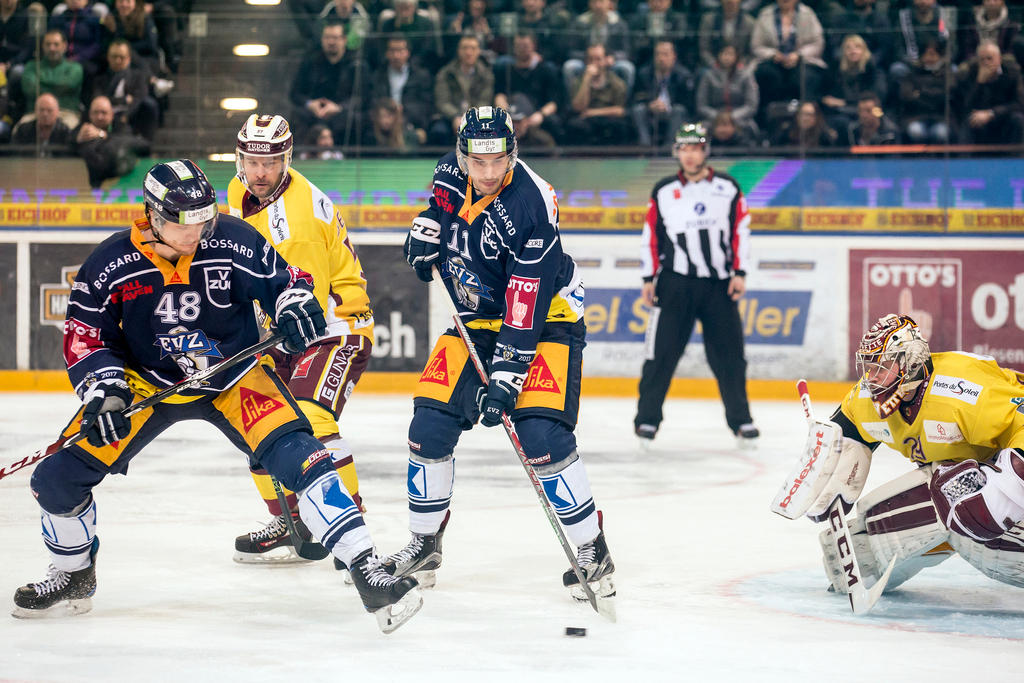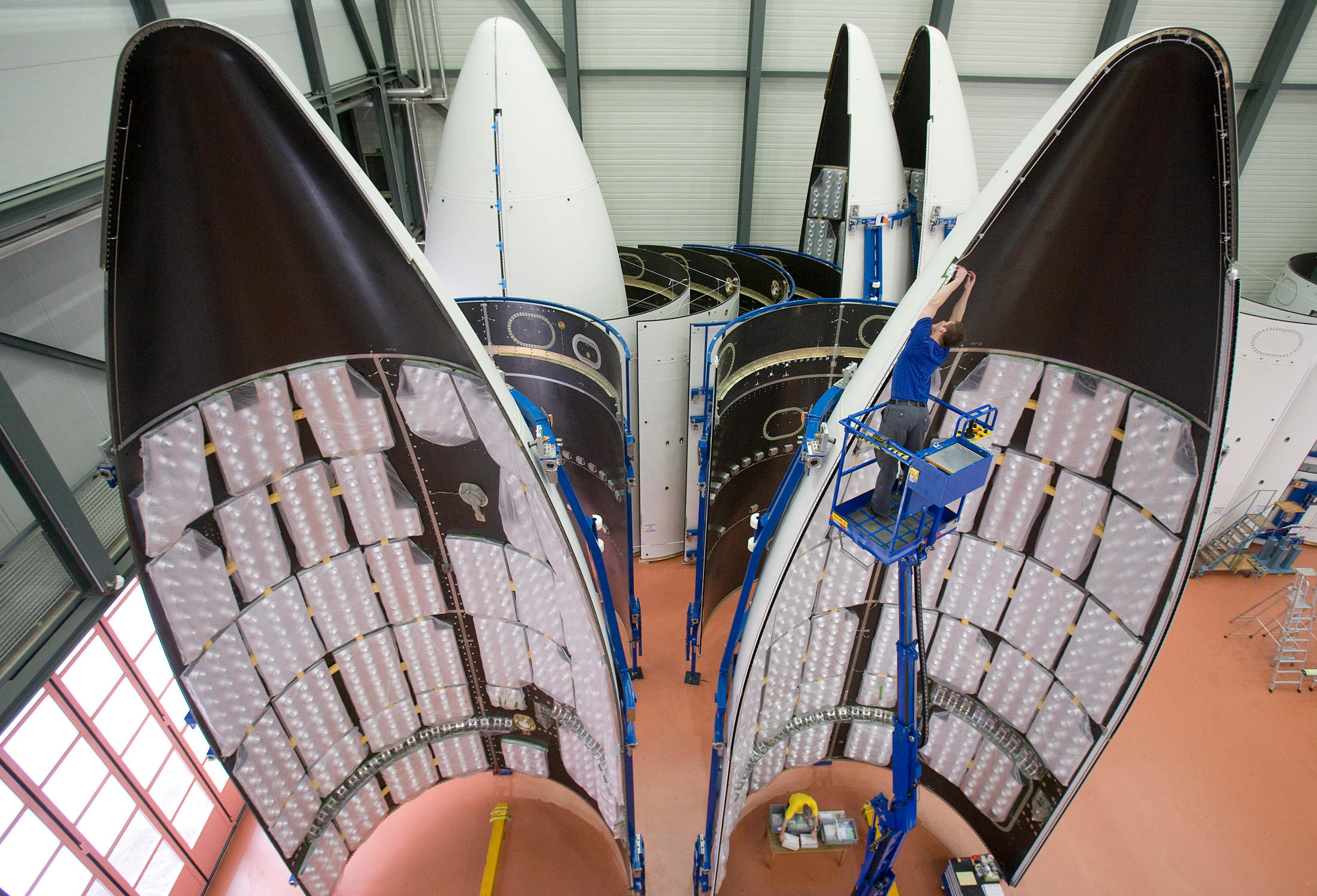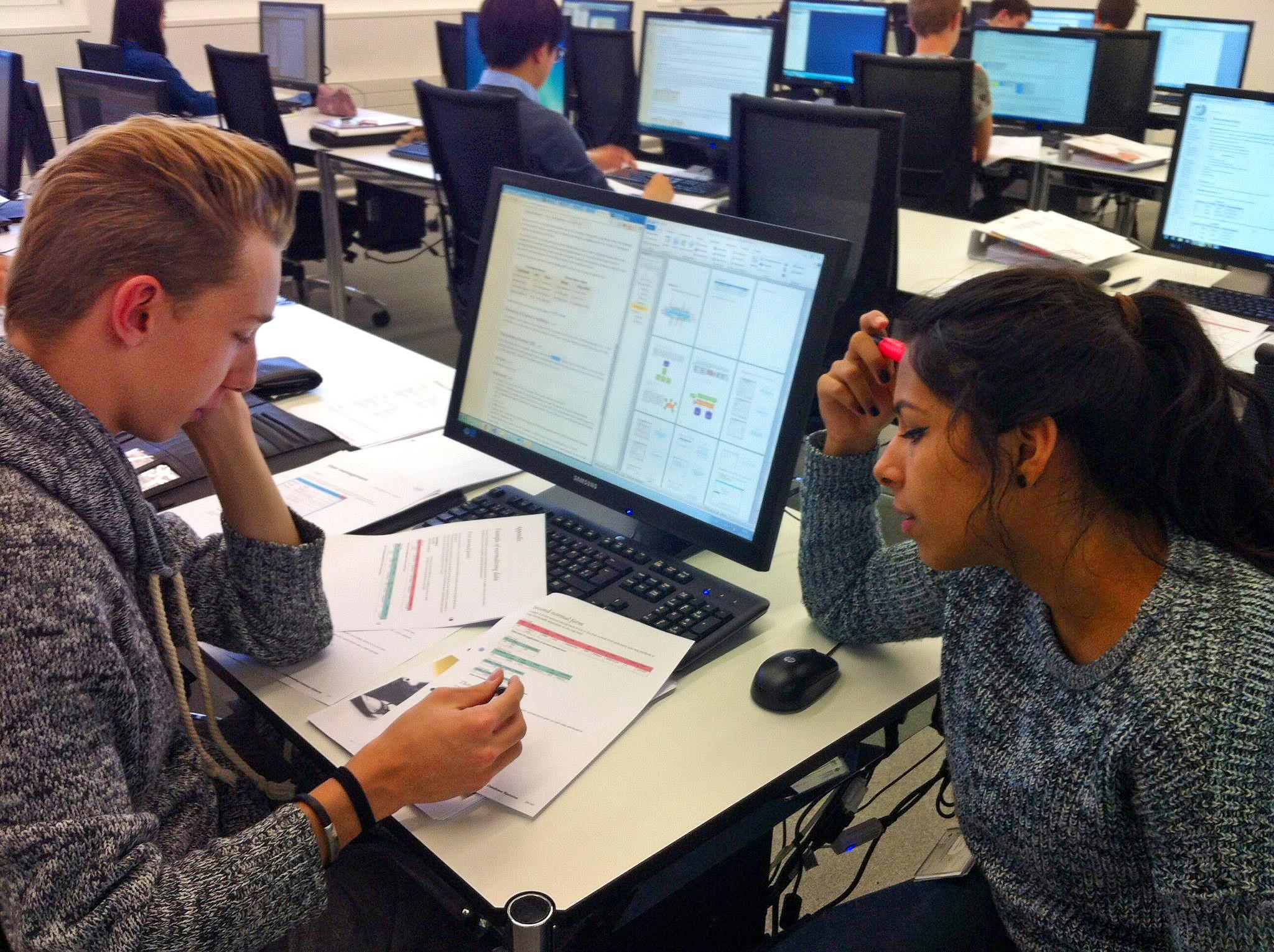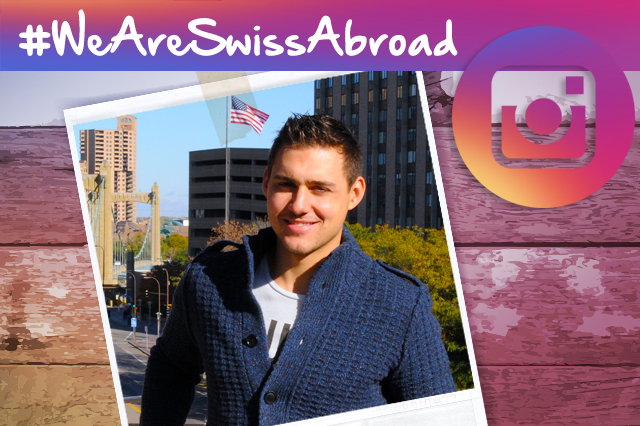Top Swiss athletes hedge their bets with dual training

A Swiss programme has found a way to get the best out of promising young athletes while at the same time providing vocational training as a safety net.
Benno Sidler had what it took to become one of Switzerland’s best volleyball players. But when it came time for him to commit to a career path, his parents insisted that he get an education. He couldn’t do both, so he quit competitive volleyball.
“I wondered, what would need to happen so young people could do both and not have to choose?”
So in 1998, the sports instructor went to his supervisor with an idea: create an apprenticeship programme that lets young athletes work towards a vocational diploma while practising their sport at the highest level. Four years later, Vinto opened its doors to athlete apprentices as the first pilot project of its kind in Switzerland.
Based in the central Swiss city of Zug, the offering now draws students from all over the country and some from other parts of the world. Sidler says Zug is the ideal place to see his project through.
“There’s the training facility, and over there is the workplace,” he says, pointing at two buildings across the street from the vocational school where he’s standing. “And if we need something from the cantonal government, the offices are right over there.”
At the ice rink a block away, members of Vinto’s hockey academy are finishing shooting drills in preparation for the evening’s playoff game. They move on to circuit training and then yoga, all before lunch.
In the afternoon, it’s off to work as administrative assistants in a company where they get on-the-job training.

More
A day at the hockey academy
“Of course, we all dream of playing in the NHL someday,” says 18-year-old Neils Seiler, a local who grew up watching Zug’s home team. His teammates agree: hockey is their no. 1 focus, and they live for time on the ice. Many of them will likely get drafted by Swiss national teams.
But workplace training and school are also important at Vinto, with vocational exams to pass and targets to meet. It’s a constant juggling act among apprentice athletes, coaches, teachers and vocational instructors.
“Issues can arise with ensuring discipline in both hockey and job training,” says Lars Weibel, the head of Vinto’s hockey academy. “A lot of communication is required so the players realise that both are important and that there can be consequences for not performing well in both areas.”
Growing pains
Originally, Vinto student athletes split their time more or less evenly between sports and apprenticeships. But soon, the top athletes among them started dropping out of the programme, saying they needed even more time to train. That didn’t sit well with Sidler.
“It was an alarm signal for us,” he said. “If the best athletes were quitting their apprenticeships, what was the point?
So the hockey academy was born, a plan hatched together with Zug’s professional hockey team EVZ. Aspiring athletes who want and need to train an extraordinary amount only attend work and school for 24 hours a week, and the rest is sports. After two years, they will have earned Switzerland’s most basic vocational certificate, enough for them to get a job or continue their education later on.
From there, if they drop out to train full-time, they will have something to fall back on. Or, they can continue with years three and four of vocational training and earn a full-fledged diploma as commercial assistants, all while continuing to train.
The original offering, which involves a more even split between the playing field and classroom, still exists for athletes not training at the same intensity level. The Vinto programme turns 15 this year, and the hockey academy spin-off has existed for three years. Two other athletes – a rower and a wheelchair basketball player – have also chosen the academy model so they can practise sports as much as possible.
“Athletes used to be able to be at the top of their game by training a few times a week,” points out Mike Slongo, an athletic trainer for the EVZ. “But today we always want more, faster and better. We couldn’t combine everything under the structure we had designed, so we had to optimise it.”
Monopoly money
But there were hurdles. Switzerland’s vocational training system is based on companies’ staffing needs and economic investment in apprentices, so many companies answered Sidler with a polite “no” when he asked if they would take on his hockey players for just 12 hours scattered throughout the week. Others got frustrated with athletes who were always away for games or practice.
The solution came via a concept used by some Swiss unemployment centres: create a pretend company with monopoly money, made-up inventory and invoices as a platform for the first two years of the apprenticeship.
“It solved a lot of problems for us, but we talked to the apprentices and they don’t find it so great. They find it fake,” Sidler admits. He’s now trying to tweak the offering again by working with the apprentices on a few real-world projects like planning sports events.
“We’re always trying to improve, seeing what we can do better in planning and execution,” says Weibel. “It’s a goal of ours to expand the types of careers the athletes can learn and be able to offer more. It’s a long, tough and complex process.”
Teamwork
Today, one athlete apprentice is filling an “order” while his desk mate organises “inventory slips”. Someone else has his leg in a cast, propped up on a chair with crutches by his side after an injury on the ice. Focusing in the workplace clearly isn’t easy, especially a few hours before suiting up for a sold out playoff game. Kübra Avul, the athletes’ vocational coach, darts around keeping everyone on task.
“On the ice or in the office, everyone needs to work together to get the job done,” she says. “We go through the day together and work out issues as they come up.”
Fabian Haberstich, a player from Langnau in canton Bern who lives in Zug during the week, says his fellow players have become “like a family” to him.
“We’re always together so it’s important to be able to work as a team,” he says.
But the competitive world of professional sports brings up certain realities.
“Athletes are competing against each other because they all want to make it into the top league, but they won’t all make it there,” says Slongo.
Ultimately, he thinks their success will come down to “discipline, will and endurance” – values he hopes his athletes are picking up in both the hockey arena and the workplace.

In compliance with the JTI standards
More: SWI swissinfo.ch certified by the Journalism Trust Initiative














You can find an overview of ongoing debates with our journalists here . Please join us!
If you want to start a conversation about a topic raised in this article or want to report factual errors, email us at english@swissinfo.ch.